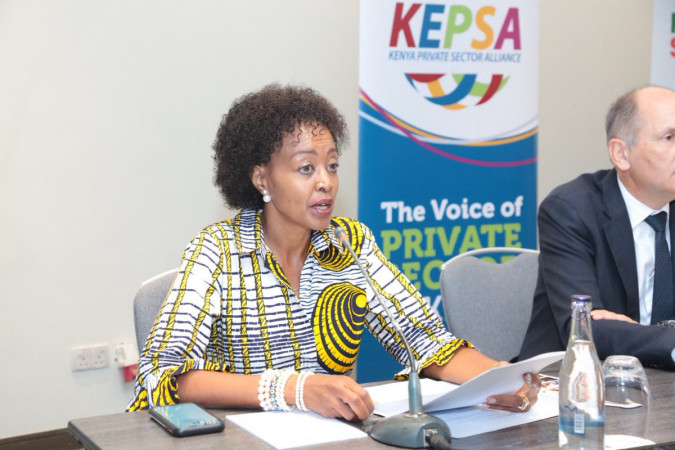Invest in women to increase economic growth, Kepsa says

Kenya Private Sector Alliance (Kepsa) estimates that Kenya can increase its gross domestic product (GDP) by between 20 to 30 per cent if the country makes an intentional decision to invest in women, close the gender finance gap, and encourage female-led entrepreneurship.
Kepsa argues that putting policies in place that encourage women entrepreneurs and expanding women’s access to capital and networks will help them realise their entrepreneurial dreams.
Speaking during the launch of the inaugural Private Sector Gender Mainstreaming Policy Kepsa chairperson Flora Mutahi (pictured) said the policy aims to offer guidance to companies and organisations seeking to optimise gender equality and women’s empowerment initiatives.
“The formulation of these policies demonstrates the private sector’s commitment to ensuring that gender mainstreaming is integral to the policies and operations of an organisation. It is therefore imperative to ensure that no one is left behind in this quest for sustainable growth and development, “ she said.
The launch was part of the two-week observance activities of the 66th session of the UN Women, Commission on the Status of Women, under the theme of Women’s Economic Empowerment in the Changing World of Work.
Mutahi said that bridging the gender pay gap was also an important intervention area to reverse the income inequality between men and women, noting that women make only 77 cents for every dollar earned by men.
Other areas the private sector can strengthen include the commitment to supplier diversity programs that support the growth and jobs of small and diverse businesses owned by women and youth.
“Research has shown that companies with a supplier diversity programme generate a 33 per cent greater return-on-investment, drive an additional $3.6 million to the bottom line for every $1 million spent in procurement operating costs while generating new revenue streams”, said Mutahi.
Impact on business
Mucha Mlingo, Chair, Kepsa Gender Sector board, said that in developing the Private Sector Gender Mainstreaming Policy, the alliance has adopted the promotion of gender equality and women’s empowerment as central to its mandate of supporting the private sector in finding solutions to socio-economic challenges that impact on business.
“In 2020, KEPSA conducted a gender assessment that revealed the existence of gender gaps that needed to be addressed, such as insufficient gender diversity in leadership and the workforce, a lack of gender-responsive policies and initiatives, a lack of freedom from violence, abuse, and sexual harassment, an existing gender pay gap, and discrimination against special interest groups in the hiring process,” said Mlingo.












